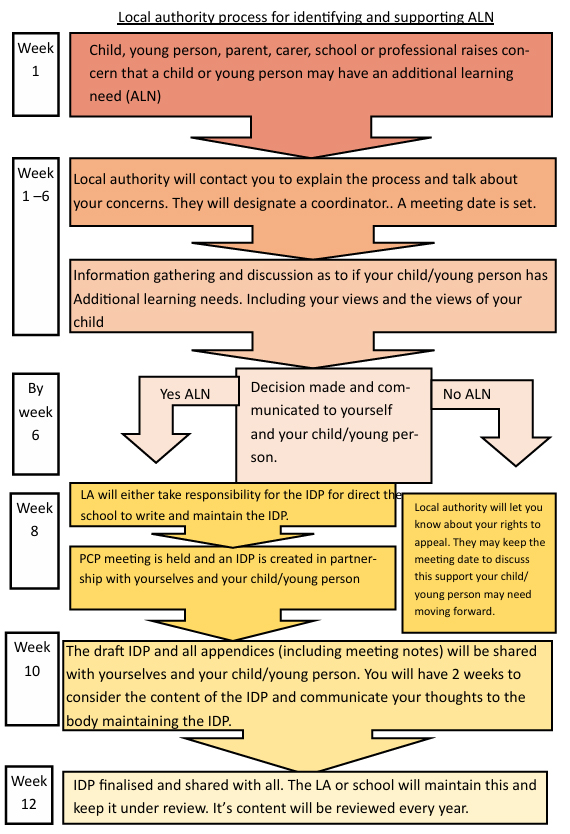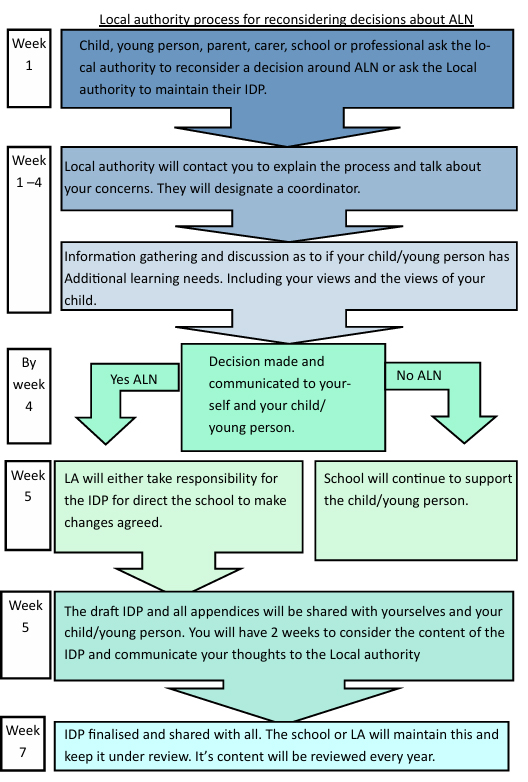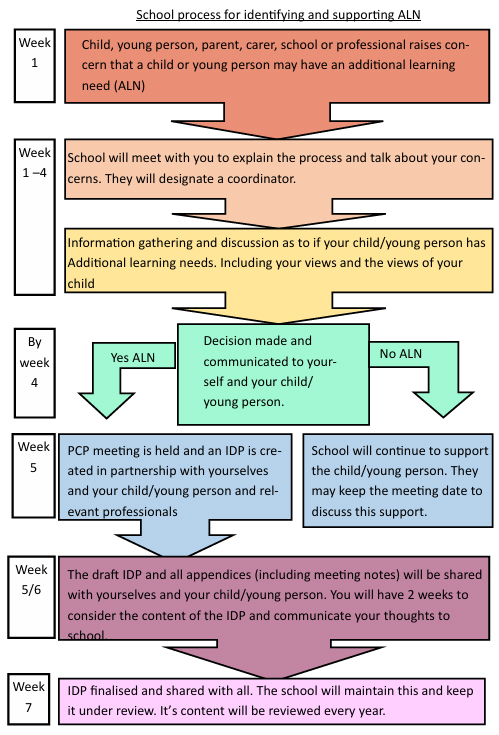Additional Learning Needs
Here at Ysgol Afon Wen, Learners with additional Learning needs (ALN) enjoy an inclusive educational offer irrespective of their age or ability. Learners with ALN have full access to our curriculum which is appropriately differentiated to meet the needs of the learner. We have high expectations for all of our learners with an emphasis on making sure every learner is proficient in their cross-curricular and integral skills. To support with this, we have a range of provisions at each phase to nurture and develop our learners in line with the four broad areas of need:
- Cognition and Learning
- Communication and Interaction
- Behaviour, Emotional and Social Development
- Sensory and/or Physical
The majority of pupils' needs within the school will be met through our universal and inclusive provision. Teachers plan and use adaptive teaching approaches and may provide temporary scaffolds to support Learners in making progress. This quality first teaching approach is the foundation on which our graduate response is built. Our graduate response not only informs our provision but also how we identify and assess the level of need for each of our learners. When assessing whether a learner has ALN the school enacts its policy in line with The Additional Learning Needs Code of Wales 2021 (250124-the-additional-learning-needs-code-for-wales-2021.pdf) which states that the school accepts that a young person has additional learning need if they answer yes to the following two part test as outlined from section 2.5 – 2.11 in The Additional Learning Needs Code of Wales 2021.
- Does the child have a learning difficulty or disability?
- Does the learning difficulty or disability call for Additional Learning Provision (ALP)?
When deciding whether ALP is required, we must analyse the frequency and intensity of the provisions in place for the learner and consider whether this is above and beyond our inclusive provision. It is common for learners to access provisions outside of the classroom environment without being considered a learner with ALN. Nor does a diagnosis of need automatically qualify a learner as ALN as their needs may be met within the schools universal and inclusive offer.
We believe that transparency and co-operation between school and home is paramount to the success of all our learners. We aim to give parents and carers regular updates on the progress of their child. If there are any concerns, in the first instance parents and carers should contact their child’s teacher or progress lead. If the concerns remain
unresolved or there are queries around provision an appointment can be made with an appropriate member of the ALN team.
Our triple A promise ensures that we will activate, advance and achieve with all our learners during their time at Ysgol Afon Wen.
Information for Parents/Carers
| ALN guide for parents | ALN-Parent-resource-May2021.pdf |
| RCT ALN information | Access and Inclusion Service - About us | Rhondda Cynon Taf County Borough Council |
| Parent/carer step by step process | Holos_Poster A3 ENG New |
| Additional Learning Needs: A Parents guide | Additional Learning Needs, a parent's guide |
| Pupil poster | AI Holos_Poster A3 ENG |
| Pupil seeking advice | Do you understand what the teacher is asking? |
| Pupil SENTW | Holos_Poster A3 ENG_FINAL Edited copy |
Nurture Provision
The Nurture provision is targeted to support pupils throughout Years 1-6. It is a safe environment which is accessible for pupils to use at break and lunch times if support is required. Throughout the school day, the nurture room is used for to provide emotional support for pupils who require assistance from the Nurture Lead to help overcome anxieties, worries and concerns.
Lego Therapy
Lego-based therapy is a social development program that uses LEGO activities to support the development of a wide range of social skills within a group setting.
The programme is based on the highly structured, systematic and predictable nature of LEGO play which makes it appealing to pupils with social communication difficulties who are particularly attracted to systems. LEGO-based therapy also appeals to pupils with anxiety, behavioural/emotional disorders and language difficulties.
Much more than simply playing with LEGO bricks, LEGO-based therapy includes the presence of a teacher/teaching assistant who guides the pupils and encourages them to address and resolve their problems. Through LEGO-based therapy, pupils can learn to communicate with others, express their feelings, change their behaviour, develop problem solving skills and develop a relationship with the world around them.
ELSA
ELSA stands for ‘Emotional Literacy Support Assistant’. Their role is to support the emotional wellbeing of pupils. They are trained by a team of Educational Psychologists and receive ongoing group supervision. ELSA support in schools is a project designed to help schools support the emotional needs of their pupils.
ELSA acknowledges that children ELSA acknowledges that children and young people learn best when they feel happier and their emotional needs are being addressed.
What can ELSAs help with?
There are a lot of emotional skills that ELSA can help with, including:
- Social Skills
- Bereavement
- Social Situations
- Therapeutic Stories
- Anger Management
- Self-esteem
- Real-life problem-solving skills
- Friendship
ELSA sessions will typically happen once a week for approximately six weeks and last between half an hour and an hour. During a session, the ELSA will:
- Check how the pupil is and how they have been feeling for the past week.
- Review the content that was covered in the last session and see if any of the information needs to be revisited.
- Introduce new content through engaging games and activities.
- End the session in a way that helps the pupil to adjust to going back to class.
ALN transition



